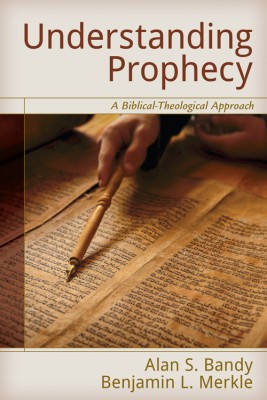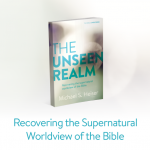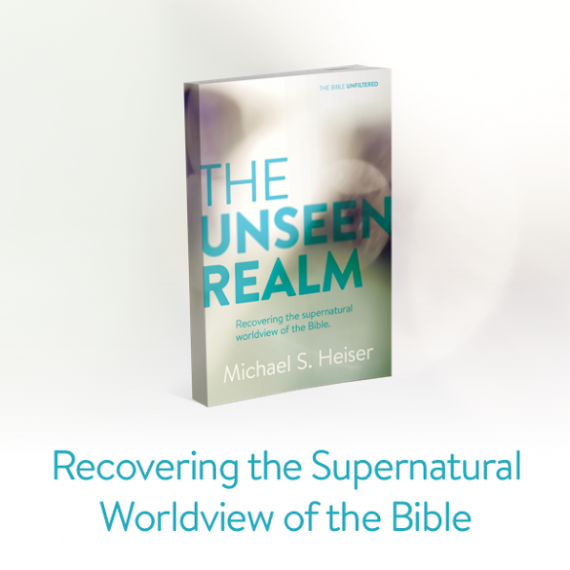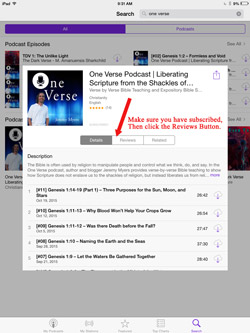I get dozens of emails every week from people all over the world who are scared of God.
They had some bad thought enter their mind and are now afraid that God is going to kill their family and then strike them down with cancer before burning their house down around their ears and sending them off to eternal torture in hell.
 They are so scared, they cannot eat, they cannot sleep, they cannot think. They tell me about physical problems, emotional problems, relational problems, and all sorts of other problems they are experiencing because they are so afraid that God is out to get them because of something bad they said or thought about God.
They are so scared, they cannot eat, they cannot sleep, they cannot think. They tell me about physical problems, emotional problems, relational problems, and all sorts of other problems they are experiencing because they are so afraid that God is out to get them because of something bad they said or thought about God.
Does Your Church Teach an Angry God?
Whenever I get these emails, this is the very first question I ask them. I ask them (1) if they attend church, and if so (2) what their church teaches them about God. Without fail, these Christians who contact me have attended, or currently are attending, a church which teaches them about an angry, vindictive, vengeful God.
Usually, they have heard some fire and brimstone sermon about the unpardonable sin or the sin of blasphemy against the Holy Spirit, and because of the book I have written on the subject, people contact me because they are scared out of their mind that they have committed this sin.
I always try to tell them that God loves them, forgives them, and accepts them … no matter what they have said or done. Due to the large number of emails I get these days, I rarely can get into long explanations or discussions via email about why this is true.
But my heart always goes out for these poor people. Their emails are full of pain and fear, and I sometimes think that many of them are manic-depressive, or bi-polar, or maybe even have OCD.
An Angry God and Mental Illness
So it was with great interest that I recently read that belief in an angry God is linked to mental illness. Here is the article I read:
Professor Nava Silton of the Marymount Manhattan College and her colleagues have reached these conclusions following their analyzing data collected during the 2010 Baylor Religion Survey of US Adults.
Thus, Professor Nava Silton focused on three different categories of people: those who believe in an angry God, those who believe in a loving deity and those who work on the assumption that God is a neutral entity.
“Three beliefs about God were tested separately in ordinary least squares regression models to predict five classes of psychiatric symptoms: general anxiety, social anxiety, paranoia, obsession, and compulsion,” reads the abstract for this paper.
Furthermore, “Belief in a punitive God was positively associated with four psychiatric symptoms, while belief in a benevolent God was negatively associated with four psychiatric symptoms, controlling for demographic characteristics, religiousness, and strength of belief in God. Belief in a deistic God and one’s overall belief in God were not significantly related to any psychiatric symptoms.”
The link between the belief in an angry God and mental illness was studied in the context of the Evolutionary Threat Assessment System Theory, which states that anxiety disorders are mainly the result of the brain’s not properly interpreting threats.
Professor Nava Silton wished to stress the fact that her research does not establish causation between the belief in an angry deity and anxiety disorders.
Quite the contrary, the study merely pins down a correlation between the two.
“That means we’re not saying belief caused psychiatric symptoms, but we see relationships between beliefs and these psychiatric symptoms,” the Professor emphasized.
The disclaimer there at the end is interesting, but I think this was more of a copout by the Professor to avoid becoming the target of angry religious people who feel he might be blaming God for mental illness.
Ironically, those who hold to a belief in an angry God also believe that God strikes people with mental illness because of their sin and disobedience…
It may be clear that God has something to do with what happens everyday in the world, but probably not personally to every person that’s ill, sometimes they just don’t the best care of themselves and their bodies.
Anyway, I think that there is a clear correlation between belief in an angry God and mental problems. I further believe that we become like the God we worship. We become like the God we believe in. So if we believe in an angry, vengeful deity, we are likely to behave in angry, vengeful ways. And of course, if we believe that God’s anger could be directed at us, life will be filled with fear and dread.

What are your thoughts on the subject? Do you believe in a God of anger, retaliation, vengeance, and violence? Do you believe that God’s anger could be directed toward you? If so, how do you cope with this idea? If, on the other hand, you’re like me and you used to believe in an angry God but now believe that God looks like Jesus, what happened in your life to bring about this change?Fi



![[#06] Genesis 1:6-8 – The Firmament in the Midst of the Waters](https://redeeminggod.com/wp-content/uploads/2015/09/One-Verse-Podcast-Jeremy-Myers-150x150.jpg)








 Then, let someone stand up and tell us a joke. Or a story.
Then, let someone stand up and tell us a joke. Or a story. Next to him lived a stone with whom he sometimes talked. It was very much the same size, shape and color as he, and was good, if undemanding, company. As a matter of fact, their conversations gave the oyster a definite feeling of superiority. He loved to dwell at length on the differences that underlay their apparent similarity. Rocks, he would say, are merely mineral. Oysters may be mineral on the outside; but inside, they are bona fide members of the animal kingdom.
Next to him lived a stone with whom he sometimes talked. It was very much the same size, shape and color as he, and was good, if undemanding, company. As a matter of fact, their conversations gave the oyster a definite feeling of superiority. He loved to dwell at length on the differences that underlay their apparent similarity. Rocks, he would say, are merely mineral. Oysters may be mineral on the outside; but inside, they are bona fide members of the animal kingdom. Starfish, it seems, have a very low opinion of oysters. They eat them, but they always refer to them as ‘nothing more than a rock with a stomach.’ In fact, what passes as starfish humor…invariably has to do with how stupid it is to be an animal and not be able to move about. The worst thing one starfish can call another is ‘sessile creature.’
Starfish, it seems, have a very low opinion of oysters. They eat them, but they always refer to them as ‘nothing more than a rock with a stomach.’ In fact, what passes as starfish humor…invariably has to do with how stupid it is to be an animal and not be able to move about. The worst thing one starfish can call another is ‘sessile creature.’ “Seriously. If you take the knee thing and really go all the way with it, you get my absolute favorite for loveliness, a prima ballerina. Talk about moves. It’s like Ernie DiGregorio, Marcel Marceau, and Squirrel Nutkin all rolled together- but as a girl, which makes it that much better. Terrific.
“Seriously. If you take the knee thing and really go all the way with it, you get my absolute favorite for loveliness, a prima ballerina. Talk about moves. It’s like Ernie DiGregorio, Marcel Marceau, and Squirrel Nutkin all rolled together- but as a girl, which makes it that much better. Terrific.
 But we must remember that this is all theology is. Some people play basketball. Some people plant gardens. Some people watch TV. Some people discuss God.
But we must remember that this is all theology is. Some people play basketball. Some people plant gardens. Some people watch TV. Some people discuss God.
 I suspect not.
I suspect not. I need her to lead me in practical ways to put my ideas into practice, and she needs me to help theologically affirm and encourage her actions in loving others.
I need her to lead me in practical ways to put my ideas into practice, and she needs me to help theologically affirm and encourage her actions in loving others. If you are not sure where your particular insanity lies, ask yourself what causes people to look at you and say, “Try to be more balanced”?
If you are not sure where your particular insanity lies, ask yourself what causes people to look at you and say, “Try to be more balanced”?
![[#05] Genesis 1:5 – The First Day of Creation](https://redeeminggod.com/wp-content/uploads/2015/09/One-Verse-at-a-Time-150x150.jpg)



















